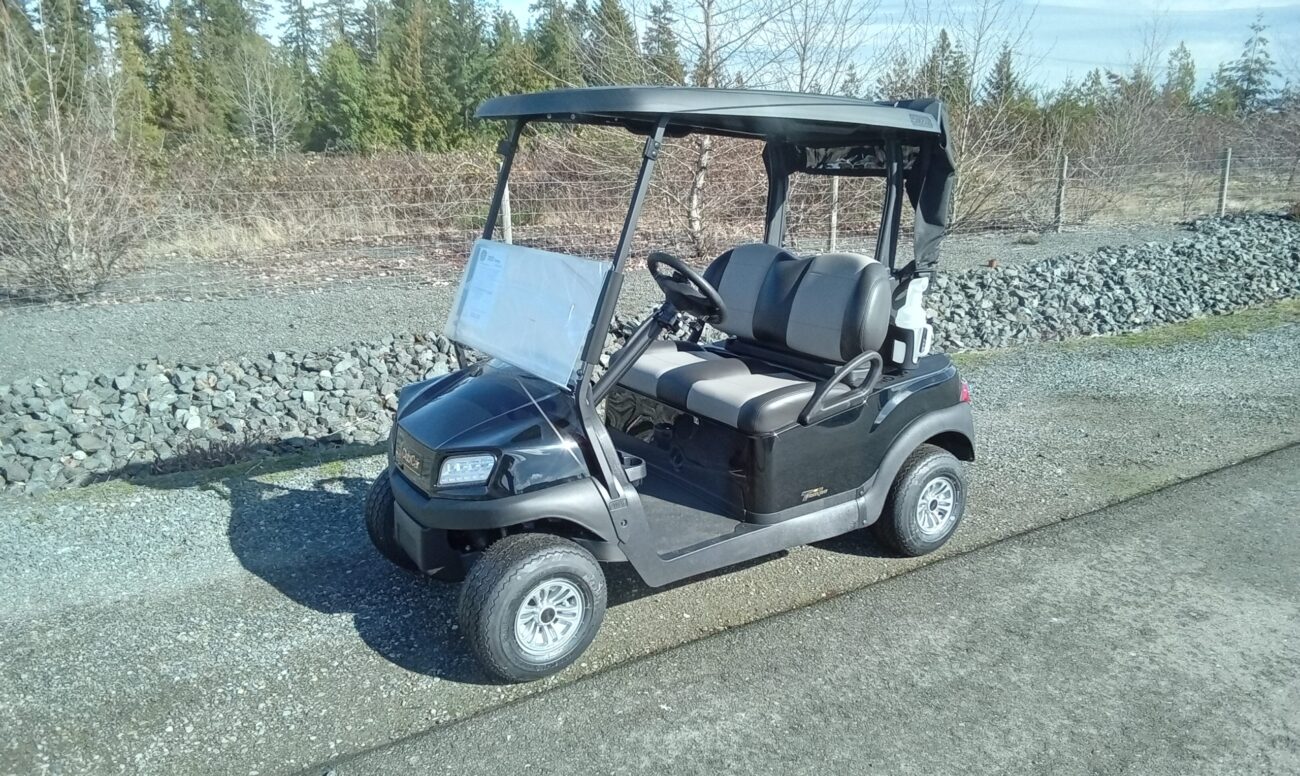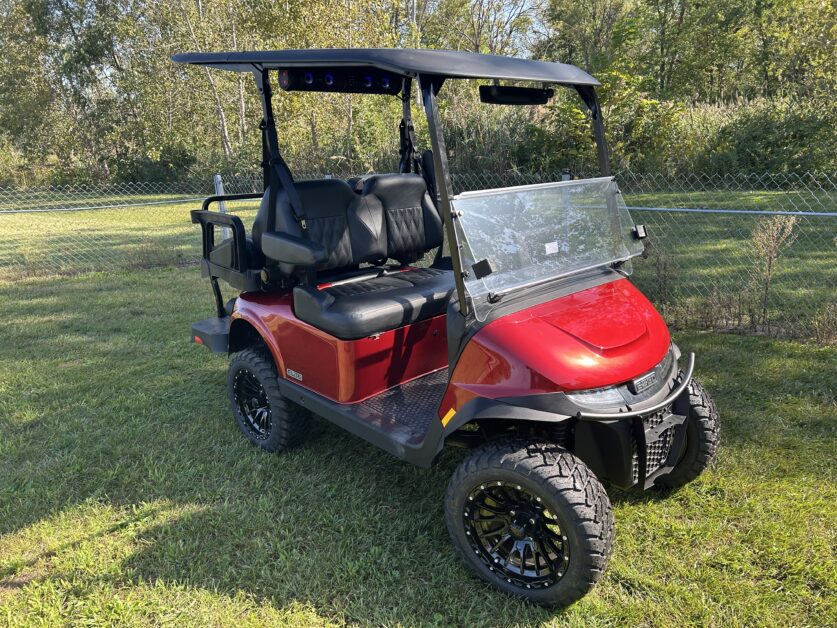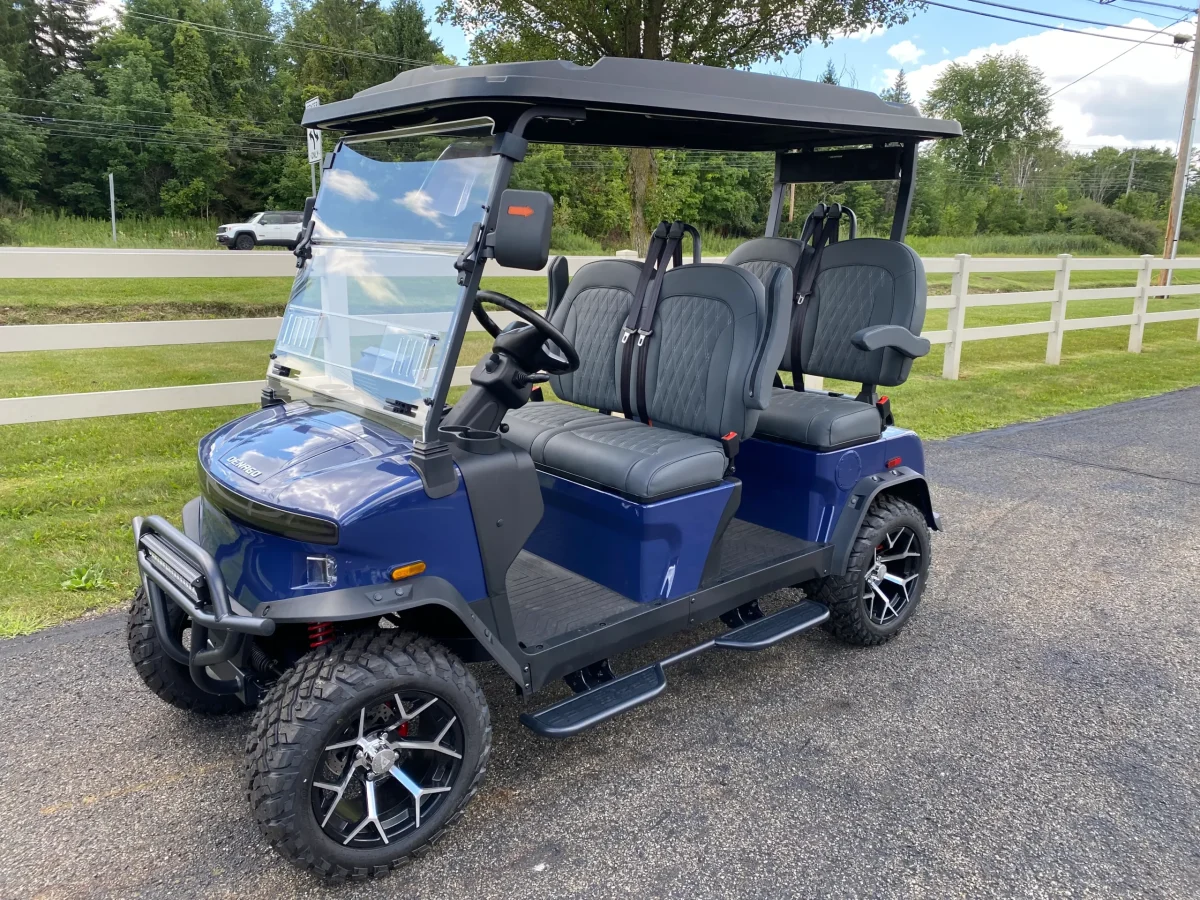
Are Golf Carts Street Legal in Florida Rules, LSV Requirements, and 2025 FAQs
Florida allows golf carts on public roads only in limited zones; to be street-legal you must convert to an LSV with safety gear, registration, and insurance.
Street Access in Florida: The Short Version
In Florida, a standard golf cart (factory top speed of 20 mph or less) may operate only on roads that a city or county has specifically designated and signed for golf-cart use. To drive on a broader network of public streets, the vehicle must be upgraded and titled as a Low-Speed Vehicle (LSV). If you’re considering a compliant build or purchase, explore modern street legal golf carts designed for comfort, safety, and daily convenience.
Golf Cart vs. LSV: What’s the Difference?
- Golf cart (non-LSV): Top speed ≤ 20 mph; no state title/registration; limited to locally designated roads and specific crossings.
- LSV (street-legal cart): Capable of 20–25 mph; must be titled, registered, and insured; may operate on streets posted 35 mph or lower (and cross higher-speed roads where permitted).
Required Equipment to Qualify as an LSV
To be street-legal in Florida, a cart converted to LSV status typically needs:
- Headlights, tail/stop lamps, and front/rear turn signals
- Reflectors, a parking brake, and an audible horn
- Windshield, exterior mirrors (driver and passenger side), and a rearview mirror
- Seat belts for all seating positions
- A unique Vehicle Identification Number (VIN) and compliance labeling
After installation and inspection, the LSV is titled and registered, receives a plate, and must carry the state-required insurance to operate on public roads.
Where You Can Drive
- Golf carts: Only on roads officially opened to golf carts by the local authority (look for posted signs). Many master-planned communities and resort areas designate such routes.
- LSVs: On streets with posted limits of 35 mph or less. Local ordinances may also define safe crossings and any additional restrictions.
What Is the New Law in Florida for Golf Carts?
Florida updated its statewide rules in 2023 to tighten who may drive a golf cart on designated public roads:
- Under 18: A learner’s permit (15+) or driver license (16+) is required to operate a golf cart on public roads where carts are allowed.
- 18 and older: Must carry a government-issued photo ID when operating a golf cart on designated roads.
These credentials apply to golf carts on designated roads. Remember, an LSV is a registered motor vehicle—so the operator must have a valid driver license, and the vehicle must be insured and plated.
Do You Need Insurance for a Street-Legal Golf Cart in Florida?
Yes. Once a cart is titled and registered as an LSV, Florida requires insurance similar to other motor vehicles (typically Personal Injury Protection and Property Damage Liability at minimum). Insurance isn’t mandated statewide for standard golf carts confined to designated roads, but many communities, HOAs, and event venues impose their own rules—always confirm local requirements.
Compliance Checklist (Before You Ride)
- Confirm your classification: If your cart exceeds 20 mph or has been modified to do so, it likely belongs in the LSV category.
- Install required equipment: Lights, belts, mirrors, horn, reflectors, parking brake, windshield, VIN/tagging.
- Title, register, and insure (LSV): Complete inspection/titling, carry active insurance, and display the plate.
- Verify local roads: For golf carts, drive only where the city/county has posted approval; obey crossings and path rules.
- Carry credentials: Driver license for LSV operation; required ID or permit/license for golf-cart operation per age.
Common Mistakes to Avoid
- Assuming neighborhood permission equals legality: Local HOA approval isn’t the same as a city/county designation or LSV compliance.
- Overlooking speed: Performance upgrades that push a cart beyond 20 mph without LSV compliance can lead to citations and liability risks.
- Skipping insurance (LSV): Street operation without active coverage is a violation and exposes you to significant financial risk.
Final Word
In Florida, golf carts become truly road-ready only when they meet LSV standards—complete with safety equipment, title, registration, and insurance. Otherwise, operation is limited to roads that local governments have explicitly opened and signed for golf-cart use. If everyday errands or resort-area mobility are your goals, consider purpose-built street legal golf carts that combine comfort with compliant hardware. Regulations can change, and cities may add local rules—so check with your municipality and the Florida Highway Safety and Motor Vehicles (FLHSMV) for the latest details.





Add a review
Your email address will not be published. Required fields are marked *